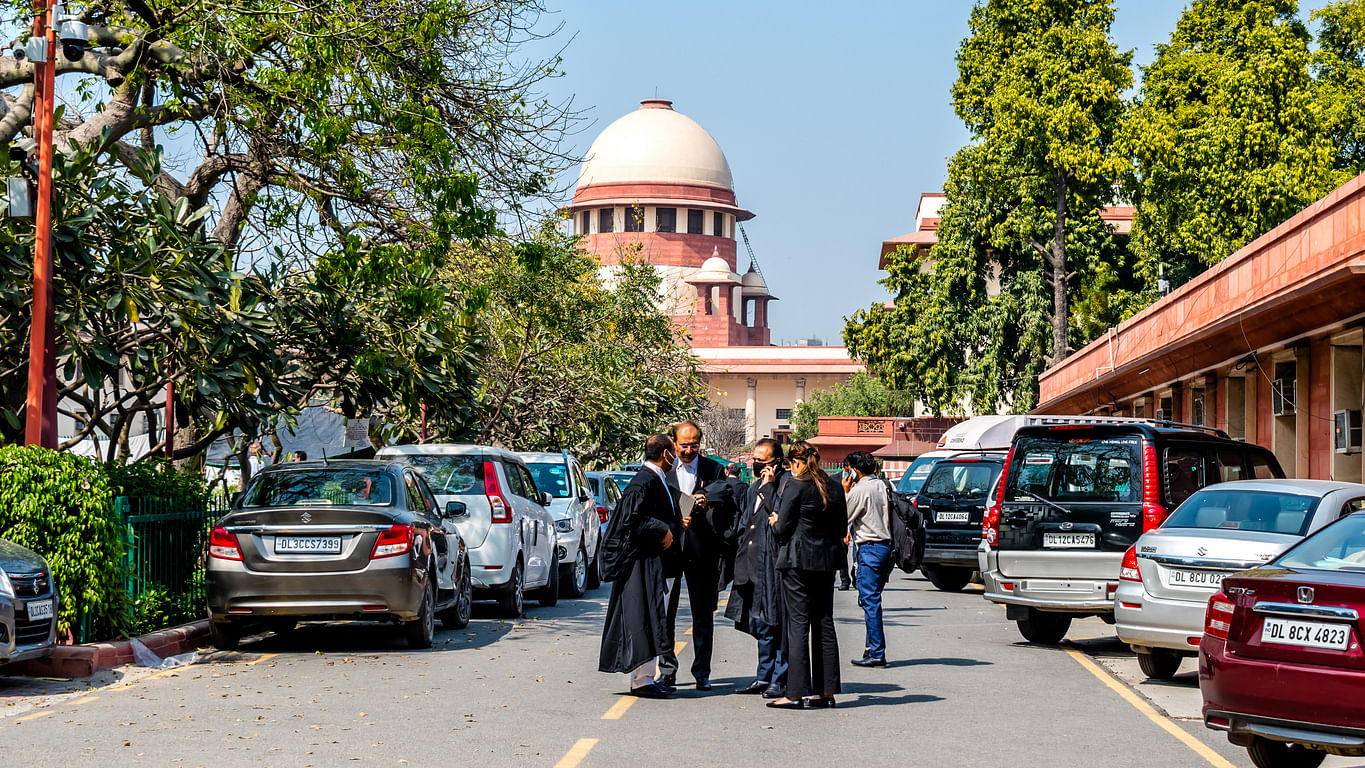
Lawyers in front of Supreme Court of India.
Credit: iStock Photo
New Delhi: The Supreme Court on Tuesday declined to consider a PIL filed by a lawyer for directions to amend the rules and the Advocate Act 1961 to exempt the advocates from wearing the traditional black coats and gowns in the scorching heat during summer season.
"Ultimately it is a matter of decorum. You should be properly attired. You have to wear something. You cannot argue in ‘kurta payjama’ or shorts and T-shirt also," a bench of Chief Justice of India D Y Chandrachud and Justices J B Pardiwala and Manoj Misra said.
The bench, however, permitted lawyer-cum-petitioner, Shailendra Mani Tripathi, who filed the PIL in his personal capacity, to submit a representation to the Bar Council of India (BCI), the state bar councils and the Centre on the issue.
In his plea, the petitioner said that the dress code for advocate which has been prescribed in India is not suitable for the Indian climate.
"Wearing a warm coat like a blanket in summer is no less than any torture. The climate of India is full of diversity. High temperature and humid weather prevail almost throughout the year in most parts of India. Wearing warm clothes in the above type of weather affects the work efficiency, which directly affects the quality of justice," he said.
The plea sought a direction to the State Bar Councils to determine "months of prevailing summer" for each state in order to exempt wearing of the black coat and gown for those months.
He also sought setting up of a committee of medical experts to study how wearing warm clothes in summer affected the health and quality of work for advocates and suggest recommendations accordingly.
The petition claimed that the British-origin dress code of black coats and gowns failed to take into consideration the country's varied climatic conditions.
"The continuous absorption of heat by the black colour of the uniform causes much irritability, duress and is counterproductive for the active work profile of advocates. This is violative of the right to safe working conditions for advocates across the country," the plea said.
